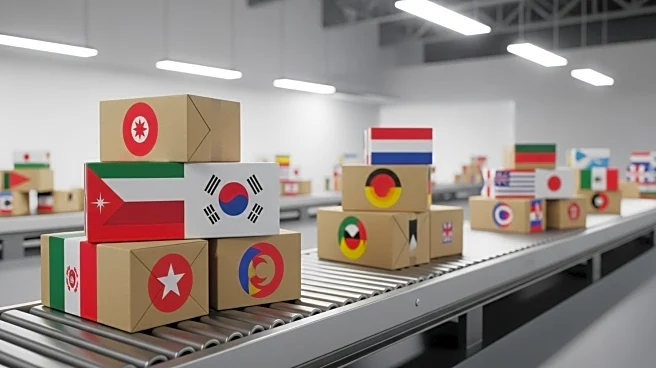What's Happening?
President Trump has closed the de minimis tariff exemption, which allowed U.S. consumers to receive foreign shipments valued at $800 or lower without paying tariffs. This exemption facilitated a significant increase in such shipments, reaching over 1.36 billion last year. With the exemption removed, tariffs now apply, ranging from 10 to 30 percent depending on the origin. This change is expected to result in higher prices for consumers as sellers pass on the tariff costs. Critics argue that the exemption was abused by companies to avoid normal import channels and tariffs.
Why It's Important?
The end of the de minimis exemption represents a major shift in U.S. trade policy, affecting consumer prices and international commerce. The imposition of tariffs on low-value imports aims to protect American businesses from unfair competition and address security concerns related to smuggling. However, it may lead to increased costs for consumers, impacting purchasing decisions and potentially reducing demand for foreign goods. The policy change reflects broader trade strategies under President Trump's administration, emphasizing security and economic protectionism.
What's Next?
Consumers and businesses will need to adjust to the new tariff landscape, potentially altering purchasing habits and supply chain strategies. The U.S. government may continue to evaluate the impact of these changes on trade and consumer behavior, with possible policy adjustments based on economic outcomes. Stakeholders in international trade may seek negotiations or alternative solutions to mitigate the effects of increased tariffs.








